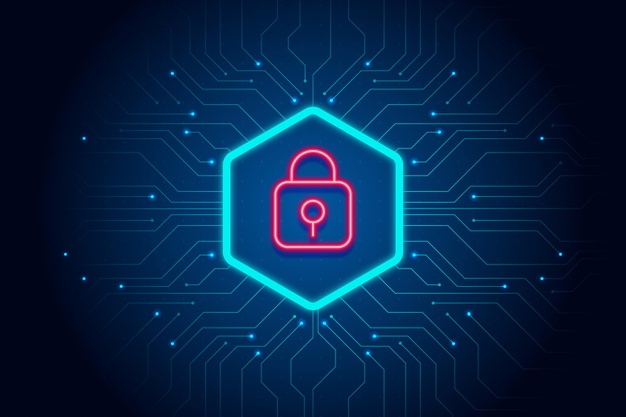If you’re looking to break into the world of cybersecurity, you’ll need more than just technical knowledge. While hard skills are crucial, mastering a set of core cybersecurity job skills will set you apart and make your transition smoother. From soft skills to work habits, these foundational abilities are essential for securing your first role in cybersecurity and advancing in your career.
Here are the 7 basic skills you need to develop to get a job in cybersecurity:
1. Communication Skills
Good communication is essential in any cybersecurity role. You will need to explain technical issues to non-technical stakeholders, like managers or clients, as well as provide detailed reports on security risks, incidents, or improvements. Being able to communicate security protocols or concerns will not only help your team understand potential threats but also ensure the organization follows best practices.
Why It Matters: In cybersecurity, a misunderstanding can lead to vulnerabilities being overlooked, which puts the entire organization at risk.
2. Problem-Solving and Analytical Skills
Cybersecurity professionals are essentially problem solvers. Whether you’re defending a system from an attack or diagnosing a breach, you’ll need strong analytical abilities. You must be able to break down complex problems, identify vulnerabilities, and come up with actionable solutions quickly.
Why It Matters: Threats can arise unexpectedly, and the ability to analyze situations and act swiftly can prevent significant damage.
3. Adaptability and Willingness to Learn
The cybersecurity field is constantly evolving with new threats and technologies emerging regularly. As a professional, you need to show that you can quickly adapt and keep learning new skills. Demonstrating curiosity and commitment to learning will make you a more attractive candidate.
Why It Matters: Cyber threats don’t wait for you to catch up. Employers value professionals who stay updated on the latest security trends and solutions.
4. Work Habits and Time Management
In cybersecurity, many tasks come with strict deadlines, especially when dealing with security breaches or system patches. Strong work habits, such as time management, are key. Employers want someone who can work independently, meet deadlines, and prioritize tasks effectively.
Why It Matters: Being reliable and disciplined with your work habits ensures you’re able to handle the fast-paced and high-stakes nature of cybersecurity roles.
5. Collaboration and Teamwork
Even though cybersecurity may seem like a solitary job, it involves working closely with various departments and external parties. You’ll frequently collaborate with IT teams, vendors, and stakeholders to ensure the organization’s systems are secure. Teamwork skills are essential, especially during incident response situations.
Why It Matters: Security issues require input from various departments and quick coordination, making collaboration crucial for resolving issues.
6. Attention to Detail
Cybersecurity requires meticulous attention to detail. Something as small as a misconfigured firewall rule or an unpatched system can lead to a major security breach. Paying close attention to every aspect of your work, from reading logs to reviewing policies, is critical to avoiding mistakes that could have serious consequences.
Why It Matters: The smallest oversight can lead to vulnerabilities, so attention to detail is crucial for maintaining a secure environment.
7. Technical Competency
Of course, having a foundational understanding of security protocols, networks, and data protection is vital. While the specific technical skills you need will depend on your role, core technical knowledge in areas like encryption, firewalls, and incident management is non-negotiable. Many entry-level roles may not require deep expertise, but familiarity with cybersecurity tools and frameworks is a must.
Why It Matters: Employers are looking for candidates who not only have technical knowledge but also demonstrate a readiness to expand that knowledge.
The cybersecurity job market is competitive, but developing the right combination of cybersecurity job skills will give you an edge. Whether you’re polishing your communication or learning to adapt to a constantly changing industry, each of these skills will play a crucial role in your success. While technical skills are essential, don’t overlook the value of strong work habits, communication, and a willingness to learn.
At CyberWarrior, we integrate these soft and technical skills into our curriculum to ensure every student is prepared not just to land a cybersecurity job but to excel in it.
Why Choose CyberWarrior Online?
- Expert-Led Courses: Our courses are crafted and taught by industry experts who bring real-world experience and insights to the virtual classroom.
- Hands-On Labs: Gain practical experience through our state-of-the-art labs, where you can simulate real-world cybersecurity scenarios and apply your knowledge in a controlled environment.
- Career Support: From resume-building to mock interviews, our platform offers resources and guidance to help you present yourself as the top candidate for any cybersecurity role.
- Community and Networking: Join a vibrant community of cybersecurity professionals and enthusiasts. Network, share experiences, and learn from others in the field.
- Flexible Learning: Whether you are a beginner or a seasoned professional, our flexible learning paths allow you to progress at your own pace and tailor your learning experience to your career goals.
Don’t miss the opportunity to enhance your cybersecurity skills and advance your career. Visit CyberWarrior Online today and take the first step toward becoming a cybersecurity expert. Start your journey with CyberWarrior and turn your cybersecurity job interview into your success story. Enroll now and be part of a community dedicated to empowering the next generation of cybersecurity professionals.
Go to CyberWarrior Online





